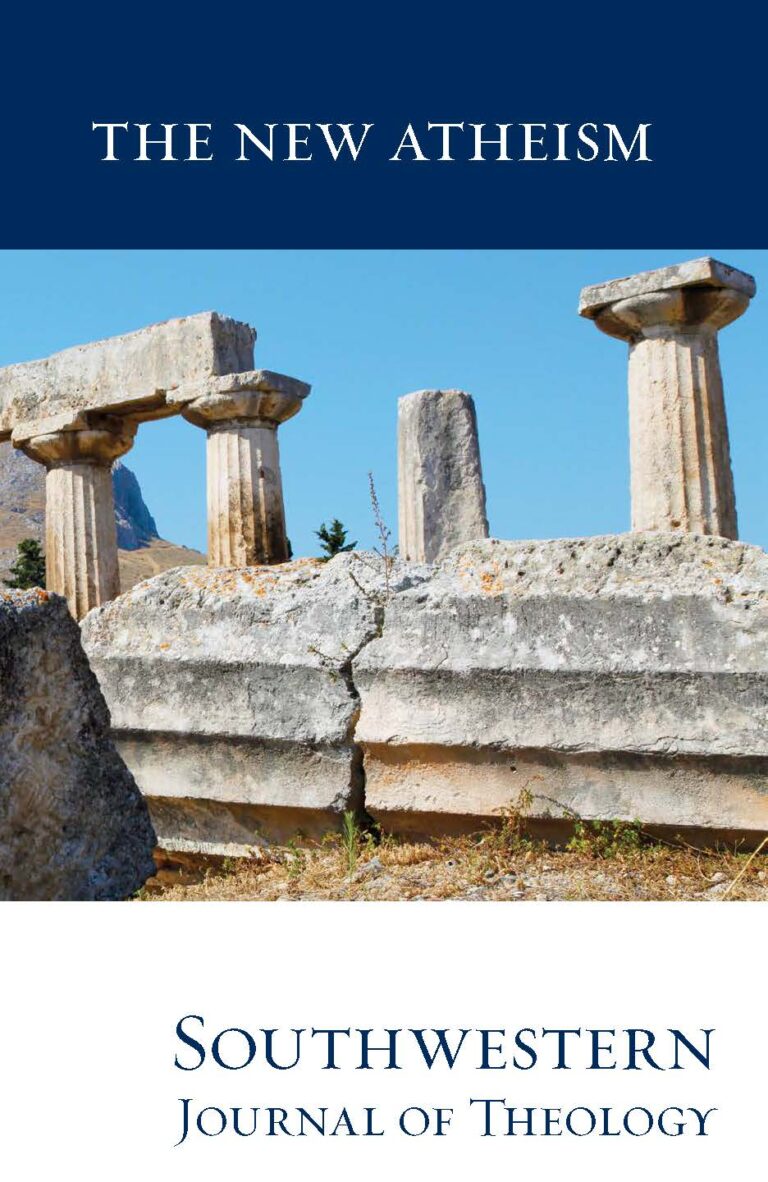
The New Atheism
Southwestern Journal of Theology
Volume 54, No. 1 – Fall 2011
Managing Editor: Malcolm B. Yarnell III
By Brian Leftow. Ithaca, NY: Cornell University Press, 2009. 377 pages. Softcover, $36.95.
Perhaps Augustine described man’s bafflement with time best: “What, then, is time? I know well enough what it is, provided that nobody asks me; but if I am asked what it is and try to explain, I am baffled” (Augustine, Confessions [New York: Penguin, 1961], 264). For centuries mankind has contemplated the ontology of time. In conjunction, theists have contemplated God’s relation to time. Many questions have been asked in light of these pursuits, such as: Does God exist outside of time? If God is eternal, how does He relate to temporally bound creatures? If God is temporal, how does He remain immutable? What are the advantages and disadvantages of each position? Brian Leftow, professor of philosophy at Oxford, seeks to answer these questions in his seminal book Time and Eternity.
Leftow details and defends divine timelessness. He claims that God is eternal (or outside of time), and that this ontological status entails his sovereignty, omniscience, and immutability. Leftow states that the aim of the book is “to articulate and defend the claim that God is in no way in time. If God is not in time . . . one must wonder what his relation to time is. Thus my second aim is to clarify the relations between a timeless being and temporal beings: between time and eternity” (3). He defends his thesis by adopting an Anselmian approach to God and time. Anselm held that “God is simultaneously present at discrete, non-simultaneous times . . . in other words, God is present at different times at once” (183). So the Anselmian view of God and time claims that God is eternal or non-temporal. He sees all time at once, yet time and existence continue on in temporal succession. The advantage of the Anselmian view of eternity, according to Leftow, is that one can hold a robust view of God’s omniscience, divine simplicity, and sovereignty while still maintaining a libertarian view of free will.
There are two intriguing aspects of Leftow’s book. Perhaps the most intriguing aspect of Time and Eternity is how Leftow details the views Augustine, Boethius, and Anselm had on God and his relation to time. In this way, Leftow branches contemporary and classical philosophical theology, noting how past thinkers have handled this topic, and how their solutions can help thinkers today. Interesting enough, Leftow argues that these ancient thinkers structured exceptional theories that have benefited contemporary philosophers in their pursuit of understanding God’s relation to time.
A second intriguing aspectis that Leftow does not assume any particular theory of time. In most treatises on God’s relation to time, the author will first state his/her own view of time. For example, the author will construct their philosophy of time by taking a tensed or tenseless view, and then explain God’s relation to the said theory. From this point, the author will seek to show that their philosophy of time is essential in his or her position of God’s relation to time. Leftow, however, does not defend or propagate any philosophy of time. In fact, he seeks to show that both A- and B-theories of time will work in harmony with his view of Anselmian divine eternality. (He does seem to favor a tensed [or A-theory] view of time; however, he argues without assuming any particular theory of time.) Whether the reader will find this a benefit or hindrance depends on the reader’s understanding and acceptance of Leftow’s arguments. Either way, Leftow’s stellar work and argumentation are easy to admire.
One disparaging feature of Leftow’s book is his claim that eternity is some sort of “time” itself. God’s eternality is a separate time series from our time series; but, it is a series which has not time, which he designates “null time.” (51). This proposition seems obscure and inchoate. Leftow never really describes what it means to claim eternity can be classified as its own “time.” This is not to say that Leftow does not attempt to describe what a “no time time” is; yet, this reviewer holds he was ultimately unsuccessful at dispelling any mystification. To be sure, the thought sounds fascinating, but ultimately it is underdeveloped. (It should be noted that this confusing taxonomy does not seem to weaken Leftow’s overall argument.)
There is no mistaking that Leftow has contributed a significant work to the topic of divine timelessness. His work is detailed and thought-provoking. Even if one was opposed to a timeless view of God, this work should not and cannot be ignored. Anyone who is interested in further study and understanding of divine timelessness would be well served in reading this book. If one is just interested in quick arguments on divine timelessness, Leftow supplies a chapter titled “A Case for God’s Timelessness,” which would satisfy that interest. Many sections are very readable and stimulating for theologians and philosophers alike, although having a background in philosophical discourse and logic would help one better understand Leftow’s ideals and arguments.





